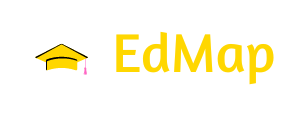Department of Economics
BA in Economics
Three for regular and Four for extension
Upon admission to the universities/Institutes of Technologies, students will join the School of Electrical and Computer Engineering based on the placement by the universities/Institutes of Technologies and the students’ interest for the discipline after completing the freshman semester.
Students must take and pass all the required modules to satisfy the requirements for graduation. CGPA and MGPA at least 2.00 No “F”, “D” grades Other requirements might be set by specific University graduation requirements.
Program Details
Economics is an amalgamation of Macro economics, Micro economics and Statistics. Macro economics is the study of the national and global economy as a whole, and covers broad concepts of income and employment, government budget and balance of payments. Whereas, Micro economics studys economics concepts at the individual level, such as the study of price determination, types of markets, demand and supply etc. Statistics is an essential element to the study of Economics as it helps to interpret and make sense of economic data. The course sows the seeds of ideation, curiosity and interest in the young minds of students, further leading them to make successful careers in banking, finance, statistics, actuary, auditing, marketing, etc. The study of economics develops a wide range of analytical and critical thinking skills, which open up many diverse career opportunities. A bachelor degree in economics prepares you for a career in not just business, banking, government, and financial transactions, but also areas such as urban planning, industrial organization, public finance, labor markets, international development, policy analysis, journalism, education and the non-profit sector.

Carrier Direction
Conduct research, write reports, or develop plans to solve economic issues such as the production and distribution of products and services, as well as monetary and fiscal policy. May use sampling techniques and econometric approaches to collect and process economic and statistical data.
Economist would :
- Examine economic and statistical data in your area of expertise, such as banking, labor, or agriculture.
- Conduct economic research and distribute findings through technical reports or scientific articles in journals.
- Using mathematical models and statistical approaches, compile, evaluate, and publish data to explain economic events and forecast market trends.
Jobs directly related to Economics degree include:
- Actuarial analyst
- Chartered accountant
- Compliance officer
- Data analyst
- Economist
- External auditor
- Financial risk analyst
- Investment analyst
- Political risk analyst
- Risk manager Statistician Stockbroker
Jobs where the degree would be useful include:
- Business development manager
- Civil Service fast streamer
- Data scientist
- Diplomatic service officer
- Local government officer
- Management consultant
- Policy officer
- Quantity surveyor
Economists work in a wide range of situations in both the public and commercial sectors. The Civil Service is the largest employer of economists. Economics graduates can also find work in the following fields:
- Banks (high street and city),
- Charity and NGOs,
- Consultancies, insurance and accounting firms, government offices, and think tanks
A degree in economics provides students with subject-specific abilities that allow them to apply economic ideas and models. You’ll obtain a comprehension of the major variables impacting social policy and financial markets, as well as statistical analysis abilities. Students will also gain key transferable skills, such as:
- Communication Numeracy
- Managing complex data and applying mathematical and statistical analytical tools
- Presenting conclusions and explaining complex data problem solution entails gathering data, forming findings, and providing recommendations
- Computing – utilizing time management software – accomplishing particular tasks within time constraints
- Analytical abilities include the ability to analyze research techniques, data, conclusions, and recommendations.
Courses
| Courses | Course credit | Course ECTS |
|---|---|---|
| Calculus for Economists | 3 | 5 |
| Linear Algebra for Economists | 3 | 5 |
| Microeconomics I | 3 | 5 |
| Microeconomics II | 4 | 6 |
| Macroeconomics I | 4 | 6 |
| Macroeconomics II | 3 | 5 |
| Introduction to statistics | 3 | 4 |
| Statistics for Economists | 3 | 5 |
| Mathematical Economics | 3 | 5 |
| Econometrics I | 3 | 6 |
| Econometrics II | 3 | 6 |
| Research method for Economists | 3 | 4 |
| Development Economics I | 3 | 5 |
| Development Economics II | 3 | 5 |
| International Economics I | 3 | 5 |
| International Economics II | 3 | 5 |
| Natural Resource & Environmental Economics | 3 | 5 |
| Labour Economics | 3 | 4 |
| Economics of Industry | 3 | 4 |
| Economics of Agriculture | 3 | 4 |
| Agriculture and rural development | 3 | 4 |
| Monetary Economics: theory & Policy | 3 | 5 |
| Public Finance | 3 | 5 |
| Planning & Project Analysis I | 3 | 4 |
| Planning & Project Analysis II | 3 | 5 |
| History of Economic Thought I | 3 | 5 |
| History of Economic Thought II | 3 | 5 |
| Thesis in Economics I** | 3 | 4 |
| Thesis in Economics II | 3 | 5 |
| Communicative English Skills | 3 | 5 |
| Basic writing skills | 3 | 5 |
| Introduction to Logic | 3 | 5 |
| Civics and Ethics | 3 | 5 |
| Introduction to computer application | 3 | 5 |
| Principle of Accounting I | 3 | 5 |
| Principle of Accounting II | 3 | 5 |
| Entrepreneurship and Enterprise Development | 3 | 4 |

